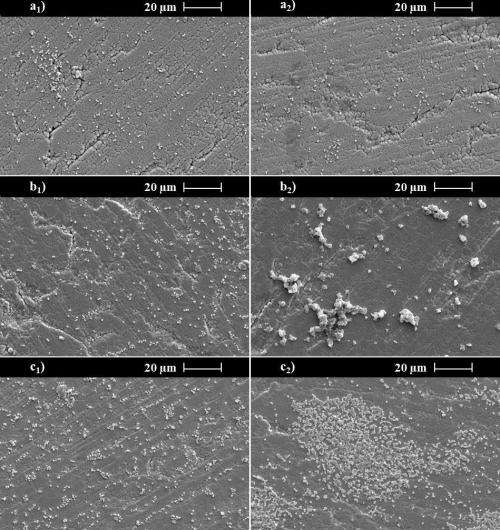Can silver promote the colonization of bacteria on medical devices?

Biomaterials are increasingly being used to replace human organs and tissues. Since biomaterials are susceptible to microbial colonization, silver is often added to reduce the adhesion of bacteria to biomaterials and prevent infections. However, a recent study by researchers in Portugal suggests that – in one material – increasing levels of silver may indirectly promote bacterial adhesion.
Published in the journal Science and Technology of Advanced Materials, the study examined how surface properties affect the adhesion of Staphylococcus epidermidis bacteria to silver-titanium carbonitride (Ag-TiCN) coatings used for hip implant applications.
Normally found on human skin and mucous membranes, Staphyloccus epidermidis is one of the main pathogens associated with prosthetic device infections. A nanocomposite thin film, titanium carbonitride is non-toxic to human cells and features excellent wear resistance, high hardness and good corrosion resistance.
Previous studies have shown that the adhesion of bacteria to biomaterials can be affected by the surface properties of bacteria, the surface properties of the material, and environmental conditions. In this study, Isabel Carvalho and her colleagues found that as the silver content of Ag-TiCN films increased from 0 to 15 percent, the surface roughness of the films decreased from 39 nm to 7 nm, while the hydrophobicity of the surface increased.
In addition, the study found that surfaces that were less rough and more hydrophobic were associated with greater bacterial adhesion. This suggests that increasing levels of silver in Ag-TiCN thin films may promote bacterial adhesion via a hydrophobic effect.
More information: Carvalho, I. et al. Science and Technology of Advanced Materials, Vol. 14 (2013) p. 035009. DOI: 10.1088/1468-6996/14/3/035009
Journal information: Science and Technology of Advanced Materials
Provided by ResearchSEA


















